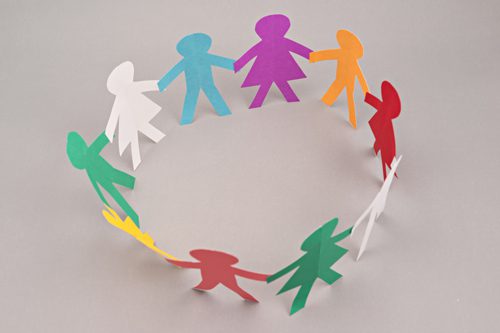 According to the Pew Research Center, as of 2014, 22.8% of Americans reported being atheist, agnostic, or unaffiliated with any particular religion.
According to the Pew Research Center, as of 2014, 22.8% of Americans reported being atheist, agnostic, or unaffiliated with any particular religion.
When people belonging to this group seek treatment for substance use disorder, they may feel isolated by the religious language that makes up at least half of the 12 steps.
Most recovery facilities and groups acknowledge that the higher power referenced in the 12 steps can be imagined to fit any religion or spiritual practice, and countless people have found comfort and strength in their own version of a higher power that can help guide their choices, attitudes, and behaviors. Regardless of different belief systems, one crucial “power” in any recovery is not at all mystical or religious. It’s not about God; it’s about other people.
The Power of A Friendly Habitat
At Mountain Laurel Recovery Center, we believe that the most damaging belief of the addicted person is the belief that they are alone. We believe that addiction is a sickness of isolation best overcome through a life lived and shared in a supportive community. We believe that community can empower an individual’s self-esteem, interpersonal relationships, family interaction, vocational productivity, and development of a healthy lifestyle. In short, community can be the “higher power” addressed in the 12 steps.
Our emphasis on community is supported by research. Bruce Alexander, a psychology professor in Canada, has been studying addiction since the 1980s. Famous for the “Rat Park” experiments, Alexander proposed that addiction is a problem of isolation rather than of chemical dependency. Alexander’s research team found that rats that lived together in a friendly habitat had “much less appetite for morphine than rats housed in solitary confinement.”
Chronic Disconnection
While Alexander no longer studies rats, he pursues this theories about addiction through historical research, particularly of colonized natives of Canada. Fascinatingly, Alexander has found a strong correlation between substance abuse in native cultures and those cultures’ destruction by the English settlers. Native peoples did not show any signs of a prevalence for addiction until their children were taken away to be educated in white schools, forced to speak English, and forced to abandon their traditions.
After much observation of and interviews with individuals affected by addiction, Alexander suggests that “today’s flood of addiction is occurring because our hyperindividualistic, hypercompetitive, frantic, crisis-ridden society makes most people feel social and culturally isolated.”
But wait, you might think. We’re surrounded by more opportunities for social interaction than we have ever been. Technology allows us 24/7 access to people, and many of us have access to community in neighborhoods, churches, jobs, homes, and more. But how many of those relationships are genuine connections that foster true intimacy and allow vulnerability?
Dr. Amy Banks, a psychiatrist and author of Wired to Connect, defines a healthy connection with someone as characterized by good energy (“zest”), clarity about the relationship, and a sense of self-worth. What Banks calls “chronic disconnection” happens when we feel paralyzed in our relationships, not knowing how much we can trust the other and feeling even more isolated as a result.
Irrelationship & Addiction
An article in Psychology Today pinpoints “irrelationship” as the likely cause of addiction. “Irrelationship,” it explains, “is addiction to pretending emptiness is not empty.” So, even when we’re surrounded by people, irrelationship “produces a false sense of safety by maintaining distance between people — especially by protecting them from the emotional risks inherent in empathy, vulnerability and intimacy.”
Because of irrelationship, the families and friends that could provide the safe, warm haven might, in some cases, make us feel even more isolated. When people feel chronic isolation, they look for relief. Substance use provides escape from the emotional pain and helps people feel the false community of other users.
At Mountain Laurel, we understand that a nurturing, accepting community can restore us to sanity; it can help us learn about and balance the parts of our character that have suffered or warped in isolation; it can provide the motivation and kindness we need to pursue genuine happiness. Working as a community allows us to give back, to be both student and teacher, mentor and friend, as we welcome others and share our stories.
Sources:
- psychologytoday.com/blog/irrelationship/201508/is-human-connection-the-antidote-addiction
- psychologytoday.com/basics/empathy

 According to the
According to the